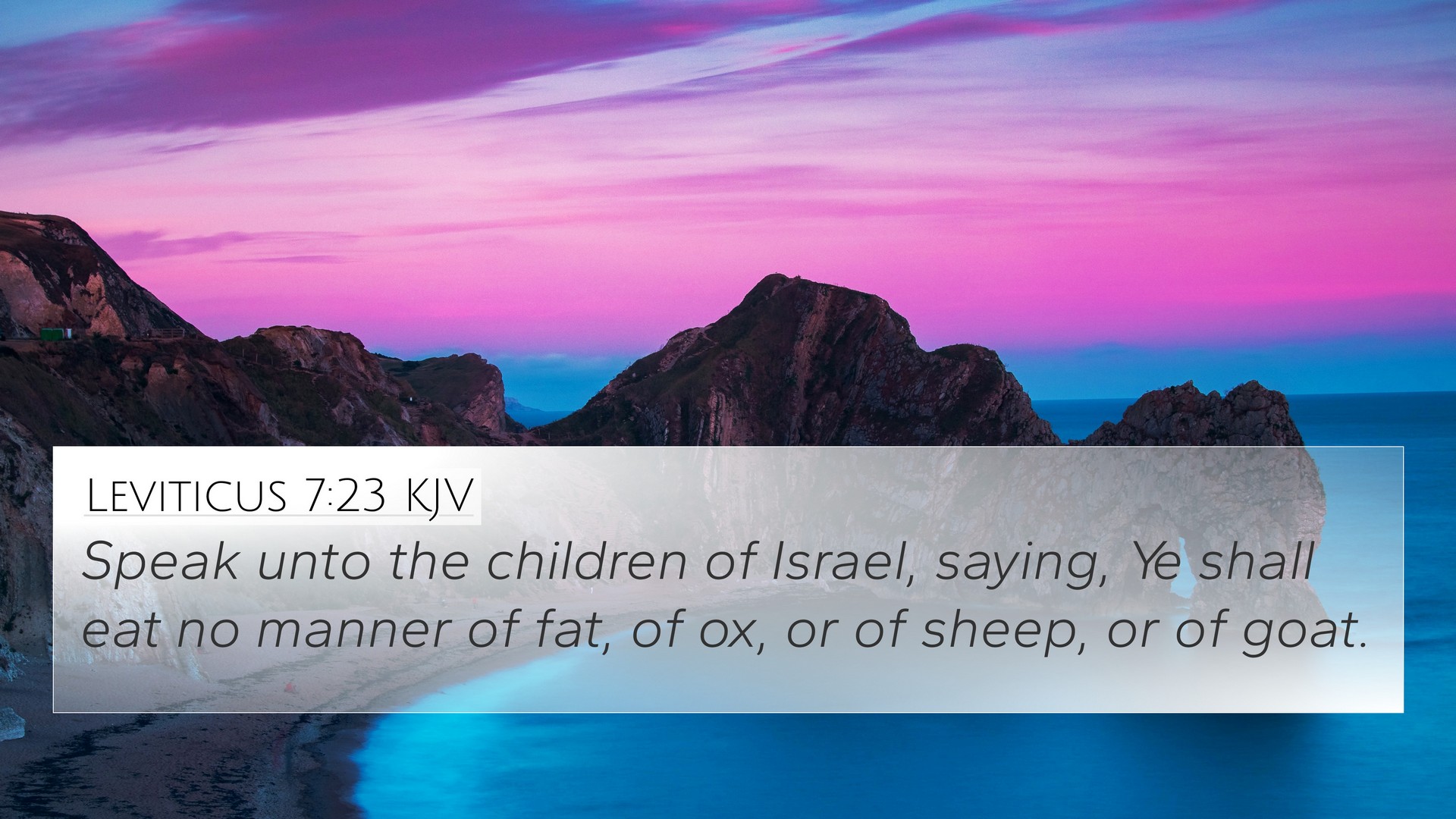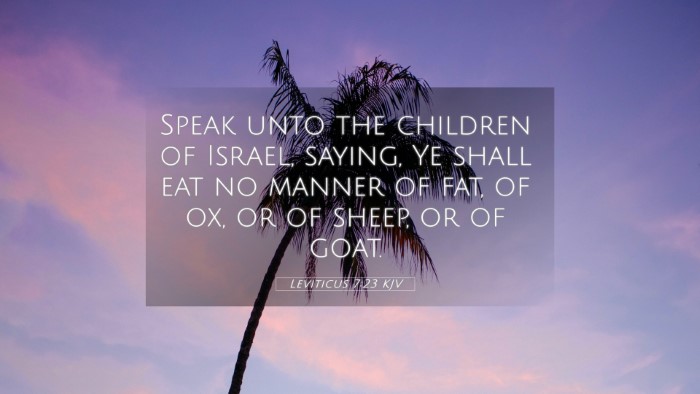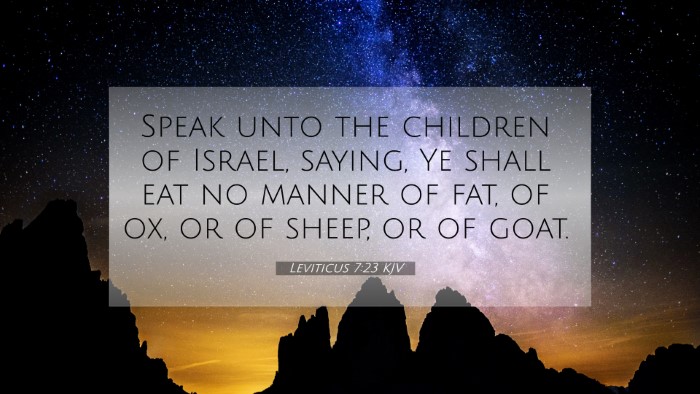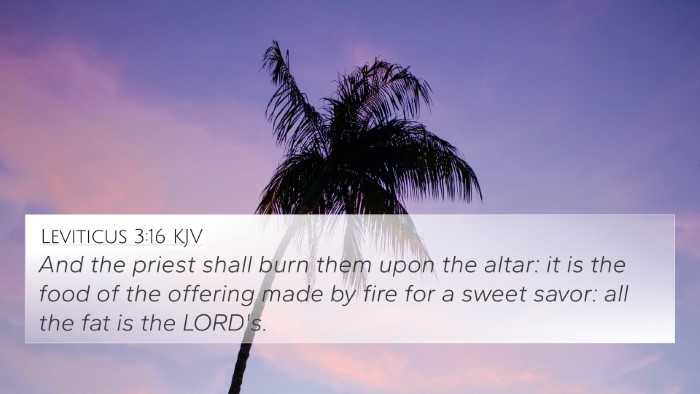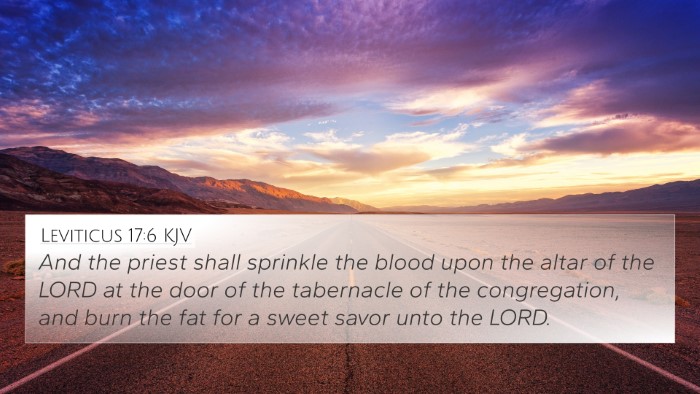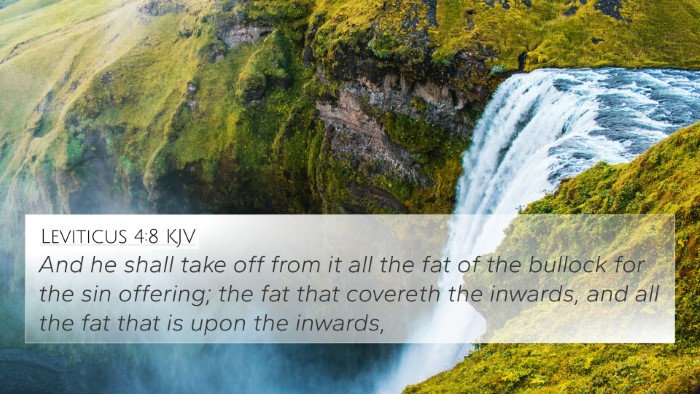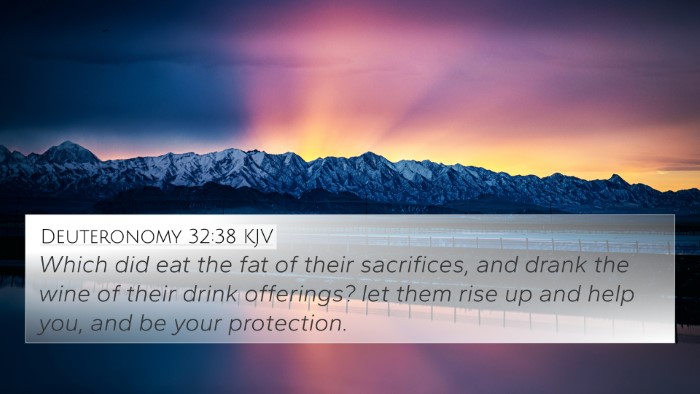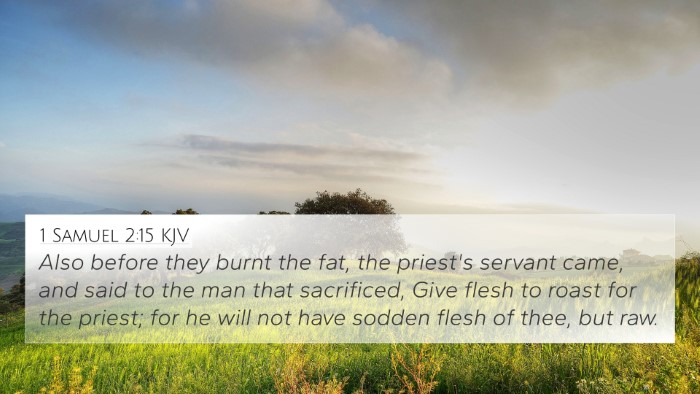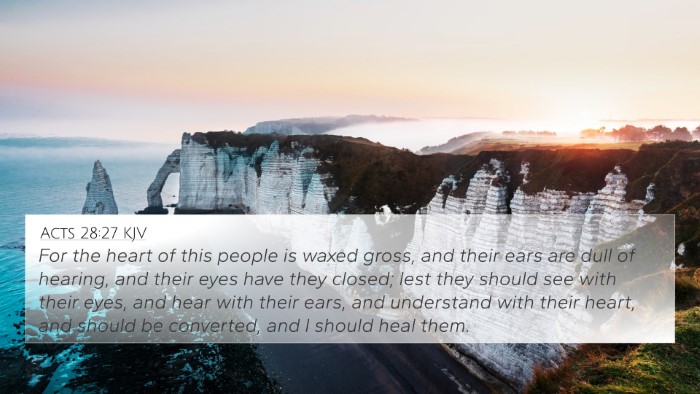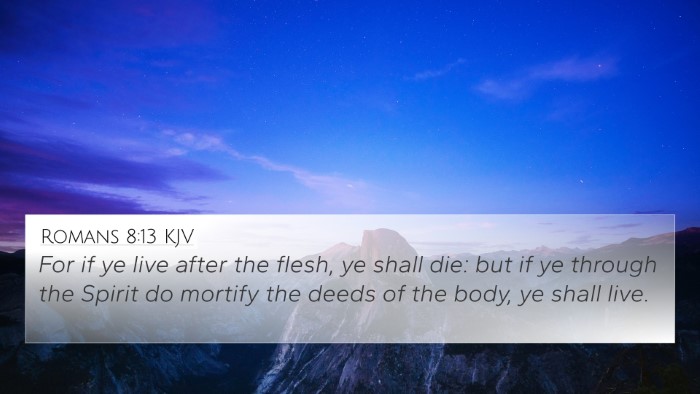Understanding Leviticus 7:23
Leviticus 7:23 states: "Speak unto the children of Israel, saying, Ye shall eat no manner of fat, of ox, or of sheep, or of goat." This verse forms part of the instructions related to the offerings and sacrifices in the Mosaic Law.
Meaning and Interpretation
This verse emphasizes God's commands regarding dietary restrictions for the Israelites. Fat, regarded as a delicacy, was to be reserved for God as a portion of the sacrifices made by the people. The prohibition serves several purposes:
- Holiness: The distinction emphasizes the holiness of God and the importance of obedience to His commandments.
- Symbolism: Fat often symbolizes the wealth and best parts of an offering, and by forbidding its consumption, it underscores that the best should be offered to God.
- Covenant Relationship: This law reinforces the covenant relationship between God and Israel, reminding the community of their unique status and responsibilities.
Insights from Public Domain Commentaries
Three notable commentaries offer further insights into this verse:
- Matthew Henry: He reflects on the obligation of the Israelites to keep the commands, emphasizing the principle that God's preferences matter in worship and everyday life.
- Albert Barnes: He notes that this prohibition may also serve a health-related purpose, as consuming fat can have adverse effects. His commentary highlights God's concern for His people's welfare.
- Adam Clarke: Clarke discusses the cultural context, explaining that fats were often offerings to pagan deities in surrounding nations, thus linking the prohibition to Israel's distinct identity.
Bible Cross References
Leviticus 7:23 connects with several other Bible verses, enhancing our understanding through thematic and contextual links:
- Leviticus 3:16-17: Discusses the prohibition of fat in animal sacrifices.
- Deuteronomy 12:17: Reiterates the commands regarding eating offerings, a continuation of dietary laws.
- 1 Samuel 2:15-16: Explains the consequences of disregarding sacrificial laws regarding fat.
- Hebrews 10:1-4: Reflects on the nature of the law and sacrifices, linking Old Testament practices to New Testament understanding.
- Romans 12:1: Transitions to the concept of presenting one’s body as a living sacrifice, drawing connections between worship across testaments.
- Ephesians 5:2: Calls for believers to walk in love, following Christ's example of sacrifice.
- Matthew 5:17-19: Provides perspective on the continuity of the Law in relation to the teachings of Jesus.
Exploring Thematic Connections
This verse also allows for a deeper exploration of thematic Bible verse connections:
- Obedience to God: The call for the Israelites to follow God's commands parallels the call for Christians to adhere to God’s will.
- Offerings and Sacrifices: A deeper understanding of the sacrificial system enriches the study of redemption through Christ’s sacrifice.
- Health and Holiness: The relationship between dietary laws and physical health speaks to a holistic view of obedience to God.
Benefits of Cross-Referencing Bible Verses
Utilizing tools for Bible cross-referencing enhances one's study and comprehension of scripture. It provides clarity on the connections between various texts:
- Thematic Bible verse connections illuminate concepts like holiness, sacrifice, and the nature of obedience.
- Cross-referencing Biblical texts can lead to a profound understanding of the overall narrative of scripture, promoting richer interpretation.
- Bible reference resources, such as concordances and cross-reference guides, aid in discovering connections, making study more efficient.
Conclusion
Leviticus 7:23 is a significant piece of scripture that offers rich insights into the nature of God's instructions to His people. By examining connections between Bible verses through cross-referencing, readers can appreciate the depth and coherence of scriptural teachings, leading to a more informed faith and practice.
